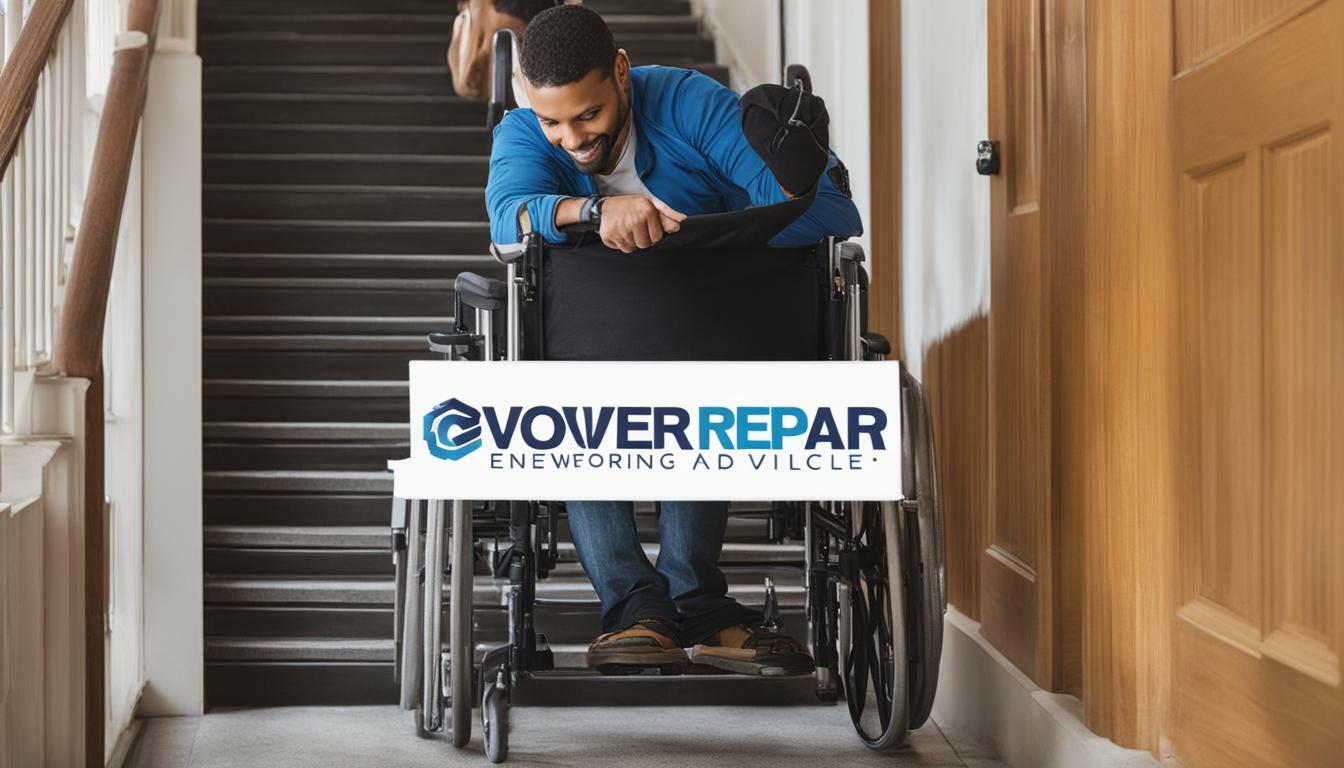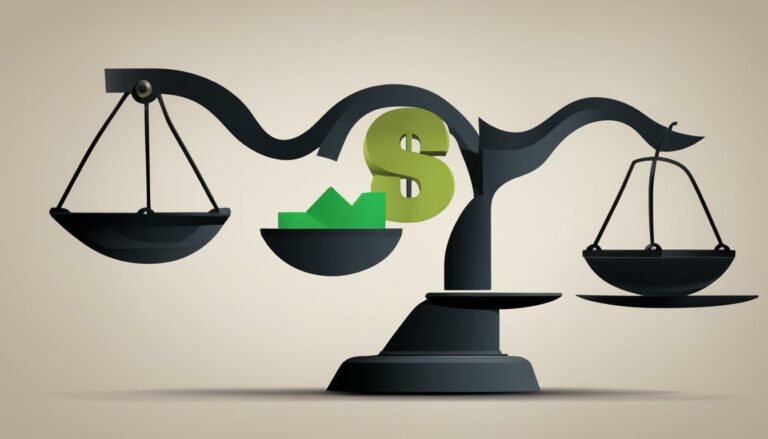Empowering Credit Repair for individuals with Disabilities

Credit repair is crucial for individuals with disabilities to overcome financial hurdles and unlock their full financial potential. Many Americans with disabilities face significant financial obstacles, including living in poverty, using nonbank financial services, and having no emergency savings. Fortunately, there are initiatives in place to address these challenges and provide support for individuals with disabilities.
- Individuals with disabilities often face unique financial challenges, such as living in poverty and lacking emergency savings.
- The Consumer Financial Protection Bureau (CFPB) offers the ROADS to Financial Independence Initiative, providing financial counseling services to help individuals with disabilities improve their credit scores and reduce debt.
- Credit repair companies, like Pyramid Credit Repair and AMB Credit Consultants, offer personalized credit repair plans to help individuals with disabilities improve their credit scores and achieve their financial goals.
- Consider the pros and cons of credit repair services for disabled individuals, such as the need for credit card information and additional fees for credit monitoring.
- Providing individuals with disabilities the necessary tools, resources, and support is essential for them to overcome financial obstacles and achieve financial independence.
Understanding the Financial Challenges Faced by Individuals with Disabilities
Individuals with disabilities encounter various financial obstacles, including living in poverty, relying on nonbank financial services, and lacking emergency savings. These challenges can significantly impact their ability to achieve financial stability and independence. According to recent data, nearly 28% of individuals with disabilities live in poverty, compared to 12.8% of those without disabilities. This disparity can be attributed to various factors, including limited employment opportunities, discrimination, and higher healthcare and living expenses.
Moreover, individuals with disabilities often rely on nonbank financial services, such as payday loans and check-cashing services, due to difficulties in accessing traditional banking services. These alternative financial services typically come with high fees and interest rates, further exacerbating their financial strain. Additionally, many individuals with disabilities lack emergency savings, making them vulnerable to unexpected expenses and financial emergencies.
In light of these challenges, it is crucial to address the financial needs of individuals with disabilities and provide them with the necessary support and resources to navigate their financial journey successfully.
Financial Challenges Faced by Individuals with Disabilities:
- Living in poverty
- Reliance on nonbank financial services
- Lack of emergency savings

By recognizing and understanding these challenges, we can work towards empowering individuals with disabilities to achieve financial independence. In the next sections, we will explore initiatives and strategies aimed at improving credit repair services for disabled individuals, as well as discuss the pros and cons associated with these services. Stay tuned for valuable insights on how to equip individuals with disabilities with the tools and knowledge necessary to build a solid financial foundation.
🚨 TUIC Errors + Low Credit Score?
CreditScoreIQ helps you build credit faster by reporting utility bills to all 3 bureaus—while you dispute errors.
Start Building Credit Today →Reference:
| Source | Link |
|---|---|
| Data on poverty among individuals with disabilities | https://www.census.gov/newsroom/releases/archives/miscellaneous/cb11-134.html |
The ROADS to Financial Independence Initiative by the CFPB
The CFPB’s ROADS to Financial Independence Initiative offers valuable financial counseling services to individuals with disabilities, including veterans, empowering them to enhance their credit scores, minimize debt, and boost personal savings. This initiative recognizes the unique challenges faced by individuals with disabilities in navigating the financial system and aims to provide them with the necessary tools and support to achieve financial independence.
Through the ROADS to Financial Independence Initiative, individuals with disabilities can access personalized credit repair tips and strategies tailored to their specific needs. The CFPB provides expert financial counselors who guide individuals through the process of improving their credit scores, reducing debt, and increasing personal savings. These counselors work closely with each individual to develop a customized plan that addresses their unique financial circumstances and goals.
Additionally, the CFPB’s initiative also focuses on promoting financial education and awareness among individuals with disabilities. By providing accessible resources and information, individuals can develop a better understanding of credit repair, budgeting, saving, and other essential financial skills. This knowledge empowers them to make informed financial decisions and take steps towards achieving long-term financial stability.
Get Started on Your Path to Financial Independence
If you are an individual with a disability seeking to improve your credit score, reduce debt, and increase your personal savings, the ROADS to Financial Independence Initiative by the CFPB is a valuable resource to consider. By accessing their financial counseling services, you can receive personalized credit repair advice and develop a plan that aligns with your goals and aspirations.
Remember, achieving financial independence is a journey, and it’s essential to have the right support along the way. The CFPB’s initiative is here to empower individuals with disabilities, providing them with the knowledge, tools, and resources needed to navigate the financial landscape successfully. Take advantage of this opportunity and start building a solid financial foundation for a brighter future.
| Benefits of the ROADS to Financial Independence Initiative | Considerations |
|---|---|
|
|
The ROADS to Financial Independence Initiative is a stepping stone towards financial empowerment for individuals with disabilities. Start your journey today and unlock the possibilities of financial independence.

Credit repair companies like Pyramid Credit Repair and AMB Credit Consultants provide personalized credit repair plans tailored to the unique circumstances of disabled individuals, with the ultimate goal of improving credit scores and realizing financial aspirations. These companies understand that individuals with disabilities face specific challenges when it comes to their credit and finances, and they are committed to helping them overcome these obstacles.
By assessing the individual’s credit report, these credit repair companies can identify and dispute any inaccuracies or errors that may be negatively impacting their credit score. They also work closely with their clients to develop a customized plan that includes strategies for building positive credit history, reducing debt, and managing finances more effectively.
One of the key benefits of these personalized credit repair plans is the guidance and support provided throughout the process. Disabled individuals often face complex financial situations, and having a professional who understands their unique circumstances can make a significant difference. These credit repair companies not only offer expert knowledge and advice but also act as advocates for their clients, working with creditors and credit bureaus on their behalf to address any issues and improve their credit standing.
| Benefits of Personalized Credit Repair Plans for Disabled Individuals | Considerations |
|---|---|
|
|
It is important for disabled individuals to carefully consider the pros and cons of enlisting the services of credit repair companies. While these companies can provide valuable assistance in improving credit scores, individuals should be aware of any fees or commitments associated with these services. Taking the time to research and select a reputable credit repair company can help disabled individuals make informed decisions and take steps towards achieving their financial goals.

While credit repair services can be beneficial for disabled individuals, it is important to weigh the pros and cons before making a decision. Understanding the potential advantages and disadvantages can help you make an informed choice that aligns with your financial goals and needs.
One of the benefits of credit repair services is their expertise in navigating the complex world of credit reporting and repairing. These professionals have the knowledge and experience to identify inaccuracies and errors on your credit report, and they can guide you through the process of disputing these issues with credit bureaus and creditors. This can potentially lead to an improved credit score and better access to credit options in the future.
Additionally, credit repair services often offer personalized credit repair plans that are specifically designed for individuals with disabilities. These plans take into consideration the unique financial challenges faced by disabled individuals and can provide tailored strategies to address these issues. By working with a credit repair service, you can receive guidance and support that is customized to your situation.
However, it is important to be aware of the potential drawbacks of credit repair services. One consideration is the requirement of providing credit card information to initiate the credit repair process. While reputable credit repair companies have secure systems in place to protect your financial data, it is essential to do thorough research and choose a trustworthy service provider.
Pros and Cons of Credit Repair Services for Disabled Individuals
| Pros | Expertise in credit repair process |
|---|---|
| Personalized credit repair plans | |
| Cons | Requirement of credit card information |
| Potential additional fees for credit monitoring | |
| Long-term commitment requirements |
Another potential downside is the possibility of additional fees for credit monitoring services. Some credit repair companies offer ongoing credit monitoring to track changes and improvements in your credit profile. While this can be helpful, it is important to understand the associated costs and whether they fit within your budget.
Lastly, credit repair services may require a commitment period before you start seeing significant improvements in your credit. It is essential to have realistic expectations and understand that credit repair is a gradual process that takes time.
Ultimately, the decision to use credit repair services is a personal one that depends on your individual circumstances and preferences. Before enlisting the help of a credit repair company, take the time to research and compare different options. Consider reaching out to organizations that provide free financial counseling services for disabled individuals to explore all available resources.

Equipping Individuals with Disabilities with the Tools for Financial Independence
Empowering individuals with disabilities requires equipping them with accessible financial education, job training programs, and mentorship opportunities to overcome financial obstacles and attain financial independence. Recognizing the unique challenges faced by disabled individuals, it is crucial to provide them with the tools and resources they need to navigate the complex world of personal finance.
Accessible financial education plays a vital role in empowering individuals with disabilities. By providing clear and concise information about budgeting, saving, and credit management, we can help them make informed decisions and develop strong financial habits. Job training programs tailored to their needs and capabilities can also open up employment opportunities, enabling them to earn a steady income and gain financial stability.
Mentorship programs are equally important in guiding disabled individuals towards financial independence. By pairing them with mentors who have successfully navigated similar challenges, they can receive personalized guidance and support along their financial journey. Mentors can provide valuable insights, share strategies for credit repair, and offer encouragement along the way.
Table 1: Financial Resources for Individuals with Disabilities
| Resource | Description |
|---|---|
| Consumer Financial Protection Bureau (CFPB) | The CFPB offers financial counseling services through the ROADS to Financial Independence Initiative, helping disabled individuals improve their credit scores, reduce debt, and increase personal savings. |
| Pyramid Credit Repair | Pyramid Credit Repair is a credit repair company that offers personalized credit repair plans for disabled individuals, aimed at improving credit scores and assisting in achieving financial goals. |
| AMB Credit Consultants | AMB Credit Consultants also specializes in personalized credit repair plans for disabled individuals, providing the necessary guidance and expertise to help them navigate the credit repair process. |
By combining accessible financial education, job training programs, and mentorship opportunities, we can empower individuals with disabilities to take control of their finances and achieve financial independence. It is through these comprehensive efforts that we can break down the barriers that often hinder their financial progress and create a more inclusive and equitable financial landscape for all.

Building a Solid Financial Foundation for Disabled Individuals
Building a solid financial foundation is crucial for disabled individuals, and it involves creating a budget, saving effectively, cultivating healthy credit habits, and seeking guidance from financial professionals. By following these steps, individuals with disabilities can take control of their finances, improve their credit scores, and work towards achieving financial independence.
One of the first steps towards building a solid financial foundation is creating a budget. This involves tracking income and expenses, identifying areas where spending can be reduced, and setting financial goals. A budget helps individuals with disabilities manage their money more efficiently and ensures that they have enough funds for their everyday needs as well as saving for the future.
Saving effectively is another important aspect of building a solid financial foundation. Disabled individuals can start by setting aside a portion of their income each month into a savings account. This can be used as an emergency fund or for future financial goals. Saving regularly not only provides a safety net during unexpected expenses but also helps individuals plan for larger purchases or investments.
Cultivating healthy credit habits is essential for disabled individuals looking to improve their financial situation. This includes paying bills on time, managing credit card balances, and avoiding excessive debt. By maintaining a good credit history, disabled individuals can increase their access to credit, qualify for favorable interest rates, and have more financial flexibility.
To ensure a successful financial journey, seeking guidance from financial professionals can be immensely helpful. These professionals can provide personalized advice, assist with credit repair, and help individuals with disabilities navigate the complex financial landscape. By tapping into their expertise, disabled individuals can gain a better understanding of their financial options and make informed decisions that align with their goals.

| Pros | Cons |
|---|---|
|
|
Using credit repair services for disabled individuals can be a viable option for improving credit scores and achieving financial goals. However, it is crucial to weigh the pros and cons before making a decision. While these services provide access to personalized credit repair plans and the expertise of credit repair companies, they may require credit card information, come with additional fees for credit monitoring, and may have commitment periods. It is important for disabled individuals to carefully consider these factors and choose a credit repair service that aligns with their specific needs and goals.
In conclusion, building a solid financial foundation is essential for disabled individuals to achieve financial independence. By creating a budget, saving effectively, cultivating healthy credit habits, and seeking guidance from financial professionals, disabled individuals can take control of their finances and work towards a brighter financial future. Additionally, credit repair services can provide valuable support in improving credit scores, but it is important to weigh the pros and cons before making a decision. With the right tools, resources, and support, individuals with disabilities can overcome financial obstacles and achieve their financial goals.
Conclusion
Credit repair plays a vital role in empowering individuals with disabilities to overcome financial challenges and achieve their financial goals, serving as a stepping stone towards greater financial independence.
Many Americans with disabilities face significant obstacles when it comes to their finances. Living in poverty, relying on nonbank financial services, and lacking emergency savings are just a few of the challenges they encounter. However, the Consumer Financial Protection Bureau (CFPB) has taken steps to address these issues through the ROADS to Financial Independence Initiative. This initiative provides financial counseling services to individuals with disabilities, including veterans, helping them improve their credit scores, reduce debt, and increase personal savings.
Furthermore, credit repair companies like Pyramid Credit Repair and AMB Credit Consultants offer personalized credit repair plans specifically designed for individuals and couples with disabilities. These plans are tailored to improve credit scores and assist individuals in achieving their financial goals. However, it is important to consider the pros and cons of utilizing these services, such as providing credit card information, additional fees for credit monitoring, and commitment periods.
Ultimately, the focus should be on equipping individuals with disabilities with the tools, resources, and support they need to overcome financial obstacles and achieve financial independence. This includes accessible financial education, job training programs, and mentorship opportunities. By building a solid financial foundation through budgeting, saving, and establishing good credit habits, individuals with disabilities can work towards a more secure future. Seeking guidance from financial professionals can also help them make informed decisions.
In conclusion, credit repair plays a crucial role in empowering individuals with disabilities to overcome financial challenges and achieve their financial goals. By addressing the unique financial obstacles they face and providing them with the necessary tools and support, we can help pave the way towards greater financial independence for all.
FAQ
What are the specific financial challenges faced by individuals with disabilities?
Individuals with disabilities often face challenges such as living in poverty, relying on nonbank financial services, and lacking emergency savings.
What is the ROADS to Financial Independence Initiative by the CFPB?
The ROADS to Financial Independence Initiative is a program launched by the Consumer Financial Protection Bureau (CFPB) that provides financial counseling services to individuals with disabilities, including veterans, to help them improve their credit scores, reduce debt, and increase personal savings.
Are there personalized credit repair plans available for disabled individuals?
Yes, credit repair companies such as Pyramid Credit Repair and AMB Credit Consultants offer personalized credit repair plans specifically designed for individuals with disabilities. These plans aim to improve credit scores and help individuals achieve their financial goals.
What are the pros and cons of credit repair services for disabled individuals?
Some pros of credit repair services for disabled individuals include potential improvements in credit scores and guidance in achieving financial goals. However, there are also considerations such as the requirement of credit card information, additional fees for credit monitoring, and commitment periods.
How can individuals with disabilities be equipped with the tools for financial independence?
It is important to provide individuals with disabilities accessible financial education, job training programs, and mentorship opportunities to overcome financial obstacles and achieve financial independence.
What steps can individuals with disabilities take to build a solid financial foundation?
Individuals with disabilities can build a solid financial foundation by practicing budgeting, saving, and establishing good credit habits. Seeking financial advice from professionals can also be beneficial.
Ready to Improve Your Credit?
Disputing TUIC errors is step one. Step two? Boost your score by reporting utility payments with CreditScoreIQ.
Get Started Now (Only $1 Trial) →3-bureau reporting • $1M identity insurance • Dark web monitoring





